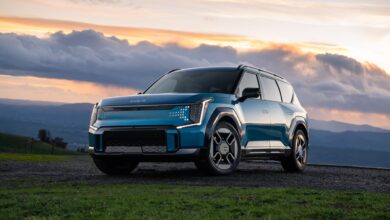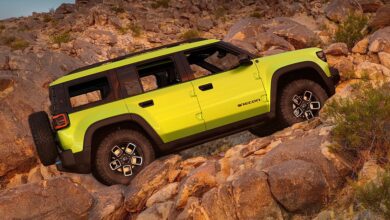Which one is best for you?

It’s a tough market for automakers selling electric vehicles, but on the flip side, it’s never been a better time for those making hybrids.
New data shows the EV market is cooling down after a strong run-up in 2022 and 2023. A new national Gallup poll out last week found that while EV ownership is up, the increase is matched by a bigger decrease in the percentage of people saying they will buy one. Fewer Americans — 35% compared to 43% a year ago — say they might consider buying an EV, while the number of those opposed to EV ownership has risen to 48% from 41%.
Meanwhile, recent first quarter sales data from automakers like Ford (F) and Toyota (TM) show hybrids are surging in popularity.
Whether or not an EV or hybrid is right for you depends on your circumstances and use-case scenarios. Here are some of the reasons why you might consider an EV or a hybrid and some of our top choices in those segments.
Cost concerns
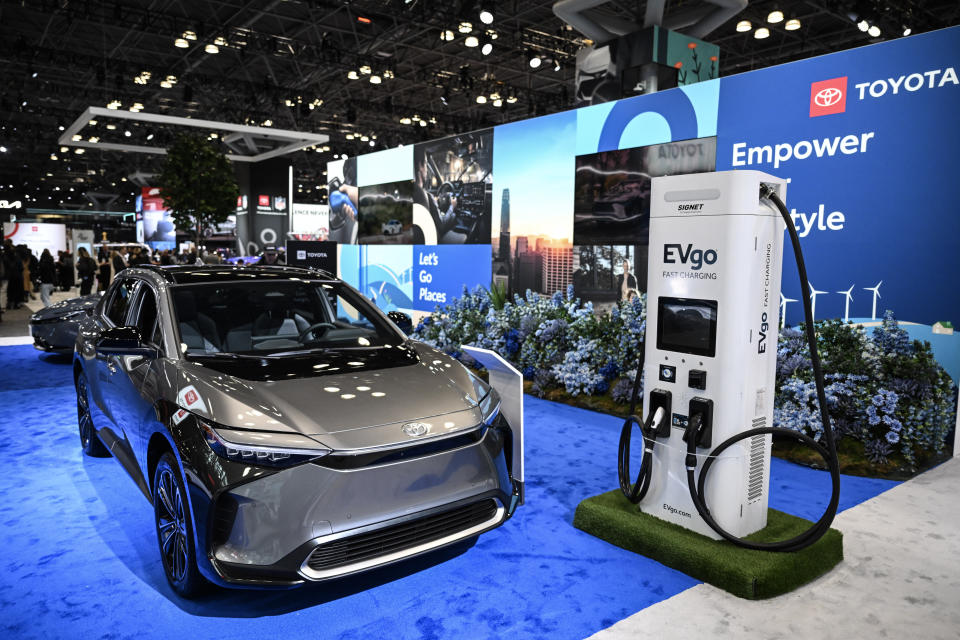

A big factor that could be fueling the popularity of hybrid sales could be cost.
Generally speaking, hybrids are cheaper than fully electric cars in terms of the up-front cost. According to Cox Automotive, the average EV sticker price was around $55,000 in Q1, though these prices are coming down. However, the latest data from car shopping site Edmunds found that the average cost of a hybrid was around $42,500 in late 2023 — a significant saving.
Plug-in hybrid electric vehicles, or PHEVs, tend to have larger batteries and a higher electric-only range, though they do cost more. However, for the most part, buyers jumping into a Ford Maverick mild hybrid or Camry mild hybrid are doing so at near cost parity to gas-only powertrain versions.
On the flip side, AAA finds that maintenance costs for EVs are much cheaper than those for gas and hybrid cars since they have fewer moving parts and lack features like an exhaust system or multigear transmission.
When an EV is in an accident or needs repairs, it is typically more expensive to fix and can lead to higher insurance costs. However, insurers note that as they accumulate more data on EVs and EV repairs, the costs to insure those vehicles will likely come down.
Read more: Are electric cars and hybrids more expensive to insure?
How you drive
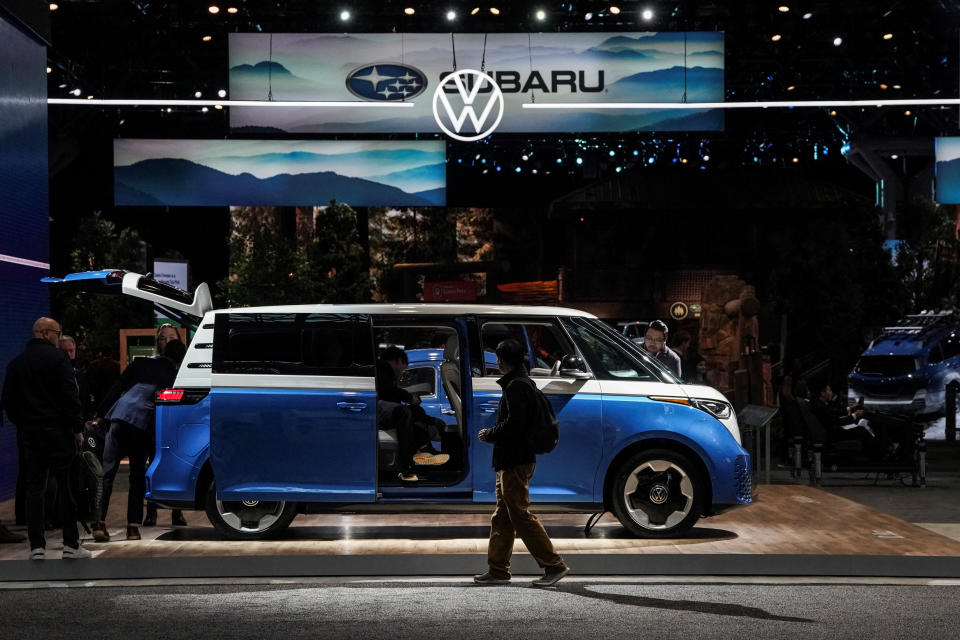

One factor that many potential buyers seem to ignore in the hybrid versus EV purchase decision is how most Americans actually drive and how often they do it.
Most Americans are taking several smaller trips a day, such as for errands or commuting to work. Kelley Blue Book found that the average American drives only 37 miles a day, far less than the 200 miles of range an entry-level EV has with a full charge.
If a buyer’s driving behavior and use case result in driving less than 100 to 150 miles a day, an EV would be the better way to go — especially if the buyer can charge at home or work or has decent charging access in his or her area.
On the flip side, if a buyer does more long-range driving on a regular basis, upward of 150 miles a day, and if EV chargers are not readily available on the commute, a plug-in hybrid or mild hybrid would offer more flexibility.
EV and hybrid choices to consider
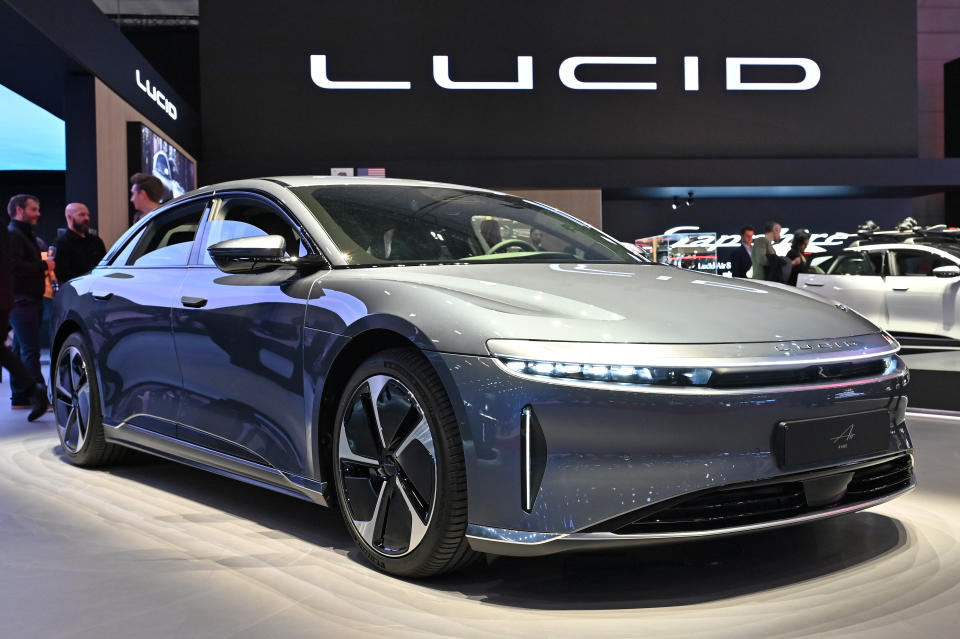

Starting with EVS, the number of choices these days for buyers is plentiful when in years past the selection was rather limited. In addition to the Mercedes, BMW, and Cadillacs of the world, EV-upstarts are competing among the top luxury brands.
Case in point, in the premium luxury segment one vehicle to consider is the the Lucid Air (LCID). California-based Lucid started off as an EV technology and battery company, then pivoted to making road cars backed by the company’s years of experience in the industry.
The Lucid Air features immense straight-line speed (3.5 seconds 0-60mph in dual-motor trim) with power that comes on smoothly. Lucid took its time dialing in the setup to get that proper mix of luxury and sport, and subsequently the Air was named World Luxury Car of the Year for 2023, added to Car and Driver’s 10 best list, and took Motor Trend’s 2022 car of the year honors. I reviewed it in the Grand Touring trim last year, and it was my favorite EV of the year. (Starting MSRP: $73,100.)
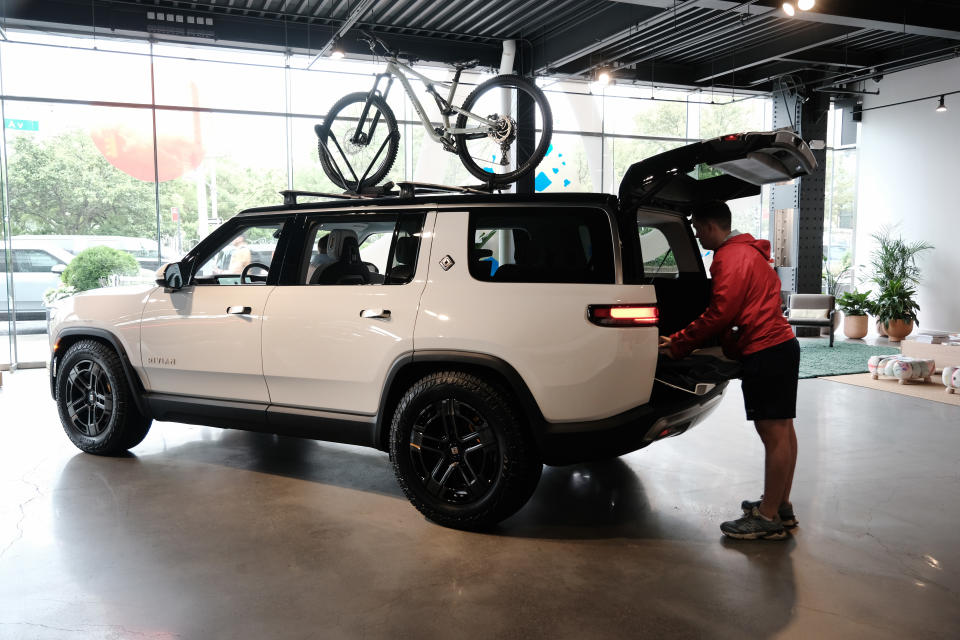

In the premium truck and SUV segment, the Rivian (RIVN) R1T or R1S are among the top choices respectively. Clean lines, oodles of utility with a frunk and “gear tunnel” in the R1T, and a near luxury-car interior give the Rivian an edge in the EV space. Add capabilities like available quad-motor design, air suspension, and max battery pack, and this truck can do it all — and I discovered it can drive like a sports car on the pavement with breakneck acceleration. It’s not surprising the R1T won JD Power’s Best Ownership Experience award for EVs, and snagged Motor Trend’s 2022 Truck of the Year award as well. (Starting R1T MSRP: $69,900.)
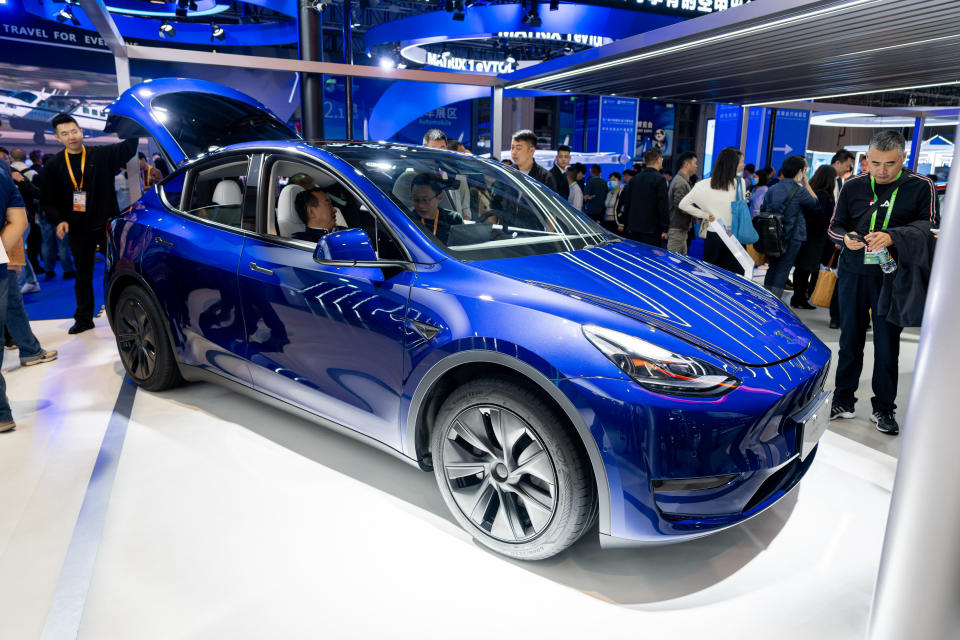

For those looking for the best value, the Tesla (TSLA) Model Y is hard to beat. The Model Y’s flexible crossover design, available three-row seating, and Tesla’s best-in-class charging network means the Model Y has most use cases covered.
With 300 miles of range available and easy-to-use software with a smartphone-like interface for tech geeks, think of the Model Y as much as a gadget as a car, and one that’s simple enough to use for even EV novices. Not surprisingly the Model Y became the word’s best selling car last year topping the ubiquitous Toyota RAV4 crossover, with Consumer Reports naming the Model Y its top electric car as well. (Starting MSRP: $44,990.)
Pivoting to hybrids, there are many options to choose from across the mild and plug-in hybrid range, but for these recommendations, the focus will be PHEVs due to their higher electric-only range.
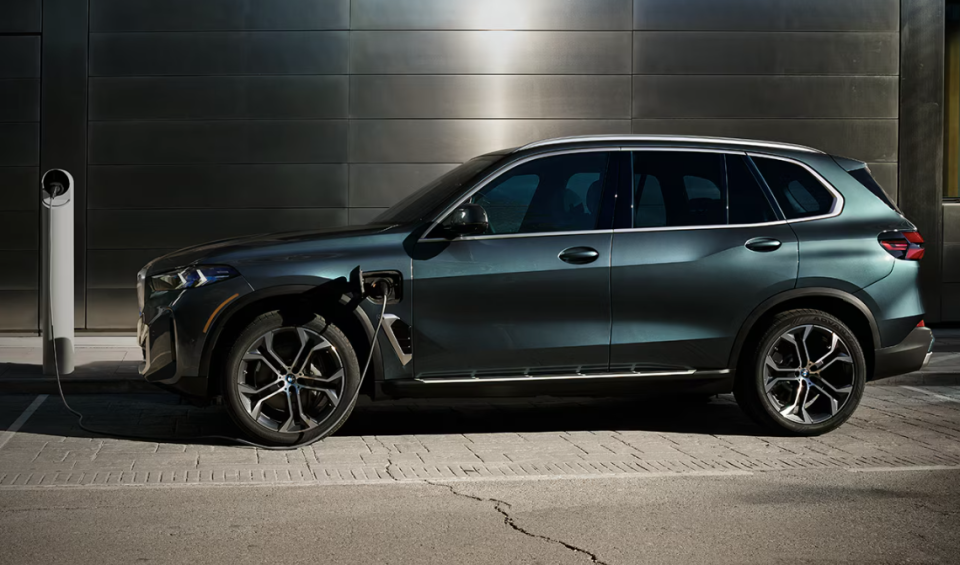

For those looking to splurge on a top choice with all the luxury fixings, the BMW X5 xDrive50e (BMW.BE) is a strong choice. Consumer Reports named the BMW its top vehicle overall — not just among hybrids — in its latest rankings. The X5 xDrive50e offers all-wheel drive and a total system horsepower of 483 (with a twin-turbo V6 and electric motor), a comfortable luxe interior, a fully digital cockpit, and 40 miles of electric range. (Starting MSRP: $73,100.)
For the biggest bang for your buck, the all-new Toyota Prius is worth checking out. The hybrid that started it all 20 years ago received a full redesign in 2023, with a much sleeker and more aggressive design featuring a lower roofline and sporty front end.
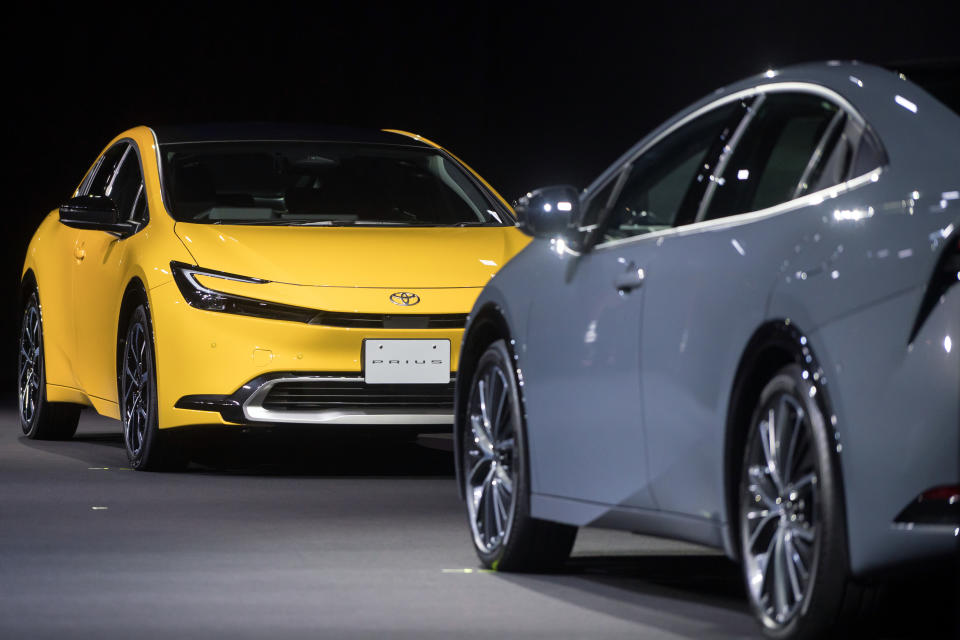

The current Motor Trend car of the year, the Prius is still a hatchback, affording more utility, and can also be had in both mild or PHEV form with the Prius Prime. In the SE entry-level form, the Prius Prime achieves 44 miles on a single charge and a robust 220 hp — a significant bump up from the prior version’s 121 hp and 25-mile range. (Starting MSRP: $32,975.)
Pras Subramanian is a reporter for Yahoo Finance. You can follow him on Twitter and on Instagram.
Click here for the latest stock market news and in-depth analysis, including events that move stocks
Read the latest financial and business news from Yahoo Finance


